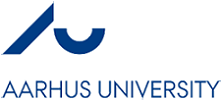Engineering (Technology Based Business Development)

Winter intake start date
2026-02-01
Winter intake deadline
2024-10-10
Introduction
The Master of Science in Engineering - Technology-Based Business Development in Herning teaches students to collect, comprehend and assess new technological insights in relation to business opportunities. Students choose between three focus areas: Technology and operations management, energy systems, and digitalisation. Regardless of the selected focus area, the programme is based on transforming companies based on thorough insight into existing operations and an assessment of technological potentials.
You will work with technology management, the implementation of new technology and the management of operating and development processes. There is a strong focus on practice and you will have many opportunities to collaborate with companies on projects and assignments. The first two semesters comprise compulsory core courses and project work. Afterwards, you can specialise yourself via elective subjects, exchange programmes with other Danish or foreign universities, collaboration with companies or entrepreneurship.
The Master’s degree programme in technology-based business development is now offered as a Master's degree programme for working professionals. The Master's degree programme for working professionals is a part-time programme aimed at people who work alongside their studies.
Career
Graduates will be able to generate innovative product concepts, business concepts and business areas. Graduates with an MSc in Engineering (Technology Based Business Development) are typically employed as innovation managers, technical sales managers, product managers, business developers or research and development project managers.
Na studia magisterskie mogą kandydować wszyscy, którzy ukończyli studia licencjackie lub inżynierskie (studia I stopnia), studia magisterskie lub studiują na ostatnim roku studiów I-stopnia. Studia, które planujesz powinny mieć zbliżony profil do tych obecnych lub ukończonych, ponieważ w procesie rekrutacji kluczowa jest ich zgodność programowa.
Wykaz punktów ECTS – osoby, które są jeszcze w trakcie studiów, muszą załączyć wypis punktów ECTS, w którym będzie wykazane, jakie przedmioty były realizowane na studiach oraz ile punktów za nie otrzymano.
Dyplom ukończenia studiów licencjackich lub inżynierskich – jeśli jesteś absolwentem wyższej uczelni, nie potrzebujesz wypisu, wystarczy załączyć dyplom ukończenia studiów wraz z suplementem (w języku angielskim lub oryginał z tłumaczeniem)
Course description - należy przygotować dokument, zbierający cały sylabus ze studiów licencjackich. Takie sylabusy najczęściej są do pobrania na stronie uniwersytetu. Należy je przetłumaczyć na język angielski (można samodzielnie) i złączyć w jeden dokument. Warto też zapytać w dziekanacie uczelni, czy nie dysponują wersją angielską.
Oficjalna skala oceniania Twojej uczelni - możesz dostać taki dokument w dziekanacie Twojej uczelni lub skonstruować samodzielnie. W obu przypadkach dokument powinien zawierać pieczątkę dziekanatu.
Spełnienie wymagań w zakresie języka angielskiego można udokumentować w jeden z następujących sposobów:
IELTS – 6.5
TOEFL – 83 (Aarhus University TOEFL kod - 8935)
Uwaga: wymagania językowe mogą ulec zmianie. Przed wysłaniem aplikacji upewnij się jakie są wymagania językowe na konkretny kierunek bezpośrednio na stronie uczelni.
W przypadku zdawania certyfikatu IELTs upewnij się, czy uczelnia oprócz wymagań oceny końcowej nie ma również wymagań odnośnie ocen cząstkowych.
- CV w języku angielskim
You can be admitted to the master's programme if the university assesses that your education has a level, scope, and content that corresponds to the academic requirements specified below.
Your qualifying bachelors’ degree must include at minimum 80 ECTS* in one out of the four academic fields mentioned below: Number of ECTS Production engineering
The following are examples of subjects within this field:
Operations management
Production planning,
Supply chain management,
Quality management,
Problem-based problem-solving in manufacturing
Technologies of manufacturing and products
Related safety and security management
80 Software Engineering
The following are examples of subjects within this field:
Requirements specification
Software languages
Software architectures
Database technology
Networks and technical communication
Programming
Problem-based problem-solving in software engineering
Related safety and security management
80 Electro-mechanical engineering
The following are examples of subjects within this field:
Electrical and electronic systems
Mechanical systems
Actuation
Sensoring/internet-of-things
Regulation/controls
Thermodynamics and its applied fields
Statics/dynamics
Related safety and security management
80 Technical design and sustainability
The following are examples of subjects within this field:
Materials science
Chemical engineering
Life-cycle assessment models
Computer representations/calculation/modelling
Sampling field studies
Technical laboratory methods
Sustainability fundamentals
Design-for-X
Related safety and security management.
80 * Dissertation projects and internships cannot be a part of the ECTS.
Graduates will be able to generate innovative product concepts, business concepts and business areas. Graduates with an MSc in Engineering (Technology Based Business Development) are typically employed as innovation managers, technical sales managers, product managers, business developers or research and development project managers.
